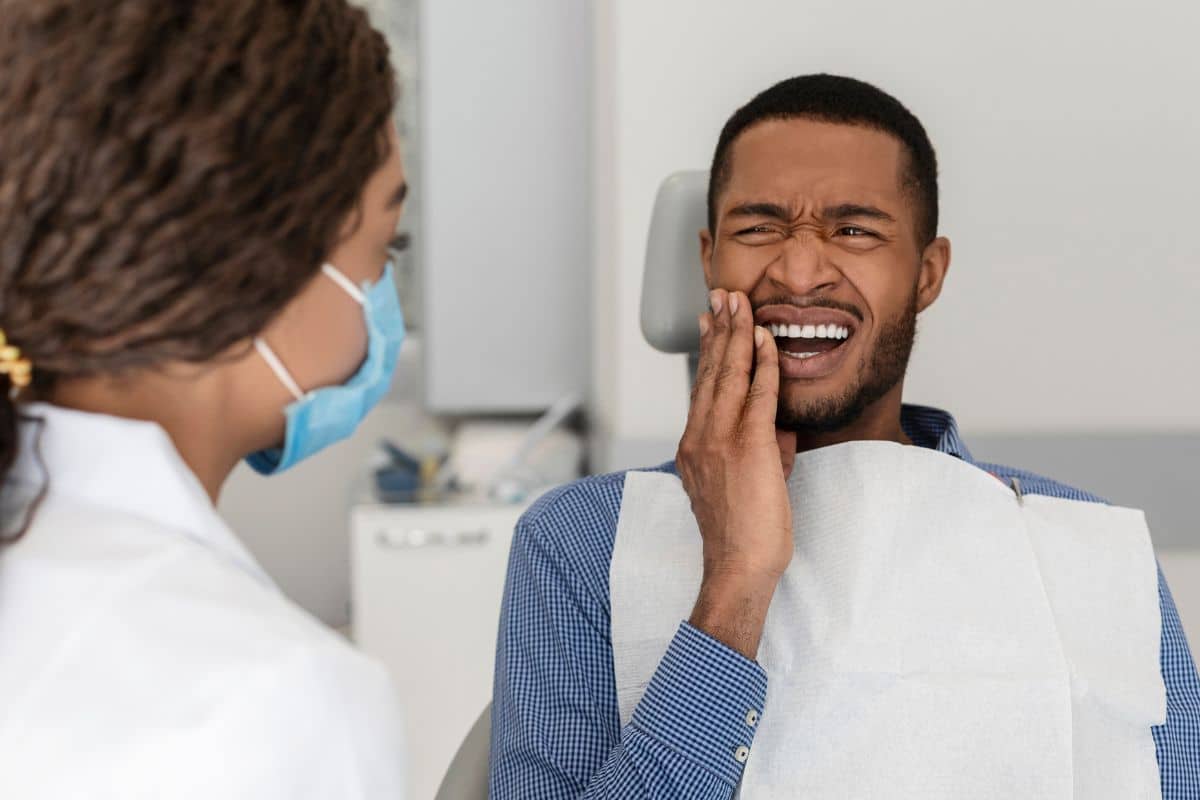
Florida Lingual & Inferior Alveolar Nerve Damage Lawyer
Holding Negligent Dentists Accountable for Nerve Injuries Causing Numbness, Pain, and Altered Sensation.
Over 35 Years of Experience Fighting for Victims of Dental Malpractice
Experiencing numbness, pain, or altered sensation in your tongue, lip, or chin after a dental procedure? You may be suffering from damage to the lingual nerve or the inferior alveolar nerve (IAN) – serious complications that can arise from dental negligence. These injuries can profoundly impact your ability to speak, eat, taste, and enjoy daily life.
At Lisa S. Levine P.A., we understand the physical, emotional, and financial toll these injuries take. With over 35 years of dedicated experience representing victims of medical and dental malpractice across Florida, Lisa Levine possesses the specific expertise required to navigate these complex cases. We believe negligent dental professionals must be held accountable, and we fight tirelessly to secure the maximum compensation our clients deserve.
On This Page
Understanding Lingual & Inferior Alveolar Nerves
Your mouth and jaw contain a complex network of nerves. Two nerves frequently injured during dental procedures are:
Damage to either nerve during dental treatment can lead to significant, sometimes permanent, complications.
How Dental Procedures Cause Nerve Damage
While dentists strive for precision, certain procedures risk damaging the lingual or inferior alveolar nerves due to their proximity. Negligence or errors significantly increase this risk. Common causes include:
Demonstrating that nerve damage resulted from a deviation from the accepted standard of dental care is key to a successful malpractice claim.
Signs & Symptoms of Lingual and IAN Injuries
Symptoms vary based on the nerve damaged and injury severity. Watch for these signs after a dental procedure:
Common Lingual Nerve Injury (LNI) Symptoms:
Common Inferior Alveolar Nerve (IAN) Injury Symptoms:
Symptoms might appear immediately or develop later. Persistent symptoms beyond a few weeks often indicate significant damage requiring investigation.
Consequences of Dental Nerve Damage
Beyond the direct physical symptoms, lingual and IAN damage can have profound effects:

Diagnosing Nerve Injuries
Diagnosis involves a thorough evaluation:
Healing & Recovery Time for Dental Nerve Damage
Healing time is highly variable:
Improving Recovery: Follow specialist advice, manage pain, maintain oral hygiene, and seek emotional support. Unfortunately, some injuries result in permanent damage.
Proving Dental Malpractice for Nerve Injuries in Florida
Suffering nerve damage doesn’t automatically mean malpractice. We must prove the dentist deviated from the accepted standard of care, and this negligence directly caused your LNI or IAN injury and damages. As your dental malpractice attorney, Lisa Levine builds a compelling case by:
Proven Results in Dental & Medical Malpractice
jean hanna
v. justin a. martone, D.M.D. & apple tree dental care
After receiving a 3-tooth bridge from Dr. Martone/Apple Tree Dental, Jean Hanna lost two foundation teeth and needed 3 implants. This resulted from alleged negligent preparation and placement, including failure to remove decay before cementing the bridge.
john doe
v. dentist
John Doe went into doctor’s office for a root canal. The dentist failed to use a dam near the effected root so the liquid used to kill the root (hydrochloric acid) leaked out and destroyed gum and bone.
Disclaimer: Past results do not guarantee future outcomes. Every case is unique.
Compensation Available in Lingual & Inferior Alveolar Nerve Damage Lawsuits
If a dentist’s negligence during a procedure resulted in damage to your lingual nerve or inferior alveolar nerve (IAN), you may be entitled to seek financial compensation for the wide range of harm you have suffered. These nerve injuries can have profound and lasting effects on your daily life. Under Florida law, potential damages in a successful dental malpractice claim may include:
Medical and Dental Expenses (Past and Future)
– Costs associated with diagnosing the nerve injury (specialist consultations, nerve testing).
– Expenses for treatments aimed at alleviating symptoms or attempting nerve repair (medications for nerve pain, physical therapy, steroid treatments, potential microsurgery).
– Future medical care anticipated due to chronic pain or ongoing functional deficits.
Lost Wages and Income
– Compensation for time missed from work due to pain, inability to speak clearly (if job-related), medical appointments, or recovery from treatments.
Emotional Distress and Mental Anguish
– Compensation for the psychological impact, including anxiety, depression, frustration, and self-consciousness resulting from the injury and its effects.
Pain and Suffering
– Compensation for the significant physical pain often associated with neuropathic nerve injuries (burning, tingling, electric shock sensations).
– Discomfort from numbness or altered sensations.
– The frustration and distress caused by these persistent symptoms.
Loss of Future Earning Capacity
If the permanent effects of the nerve damage (e.g., chronic pain, severe speech impediment, difficulty concentrating due to pain) impair your ability to continue in your profession or earn at your previous level.
Loss of Enjoyment of Life
Acknowledging how the injury impacts your ability to enjoy daily activities, such as:
– Tasting and enjoying food (due to altered taste or numbness).
– Speaking clearly and engaging in conversations.
– Eating without pain or difficulty.
– Intimate moments or social interactions affected by altered sensation or speech.
The value of your claim will depend on factors such as the severity and permanence of the nerve damage, the specific ways it has impacted your life and ability to function, the extent of your financial losses, and the strength of the evidence proving dental negligence. Lisa Levine, an experienced Florida dental nerve injury lawyer, will meticulously evaluate all aspects of your case to pursue the maximum compensation you rightfully deserve.
Why Choose Lisa Levine for Your Nerve Damage Case?

Frequently Asked Questions About Dental Nerve Damage Claims
Get Help Fighting Your Dental Nerve Damage Lawsuit
If you or a loved one suffered lingual nerve or inferior alveolar nerve damage due to a dentist’s mistake in Fort Lauderdale, Weston, or anywhere in South Florida, don’t wait. Protect your rights and explore your legal options. Lisa S. Levine P.A. offers the experience, dedication, and resources needed to pursue justice and fair compensation.
